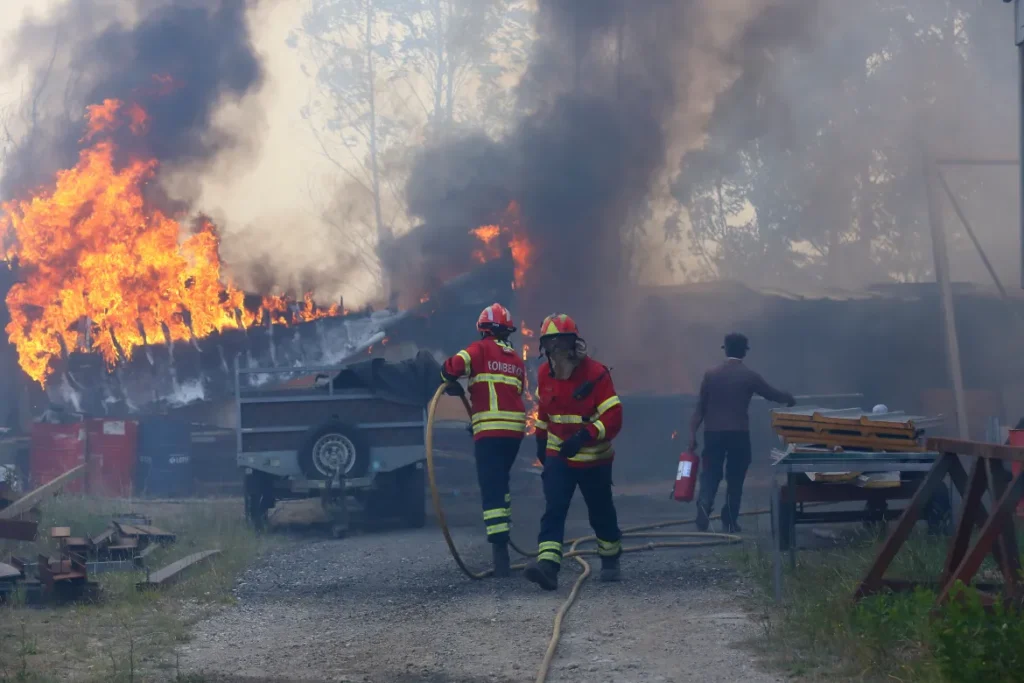Portugal is currently battling multiple major wildfires across its central and northern regions as extreme heat and prolonged drought conditions intensify the crisis. On Tuesday, thousands of emergency responders, aided by water-dropping aircraft, were deployed to combat at least three major wildfire outbreaks, prompting a nationwide escalation of the fire threat level.
One of the most destructive fires erupted near Arouca, approximately 300 kilometers north of Lisbon, forcing authorities to evacuate residents and close the popular Passadiços do Paiva boardwalk, a key tourist site. “It’s desperate to see this… we need help, we need air support,” said Rafael Soares, a resident of Canelas. He linked the recurring fires to climate change-induced drought, recalling a similar blaze last September that scorched over 6,000 hectares (15,000 acres) of forest.
Further north, near the Spanish border, flames continue to rage through the Peneda-Gerês National Park, producing dense smoke and triggering stay-at-home alerts for nearby towns. In response, Spain dispatched firefighting aircraft to assist in controlling the fires along the border.
Across the border in Spain, three separate wildfires were reported in the autonomous region of Castile and León, with the most dangerous one located near Ávila, about 100 kilometers west of Madrid. Due to deteriorating air quality, officials ordered residents in Mombeltrán to remain indoors.
Elsewhere in southern Europe, Turkey and Greece are also grappling with severe wildfires. In Turkey’s Eskişehir region, ten firefighters lost their lives last week, highlighting the growing risks to emergency personnel. Meanwhile, wildfires in Greece over the weekend led to evacuations across several villages, with at least five people injured.
While hot and dry summers are common in the Mediterranean, experts warn that rising global temperatures are fueling more frequent and intense wildfires across the region, turning seasonal threats into annual disasters.

